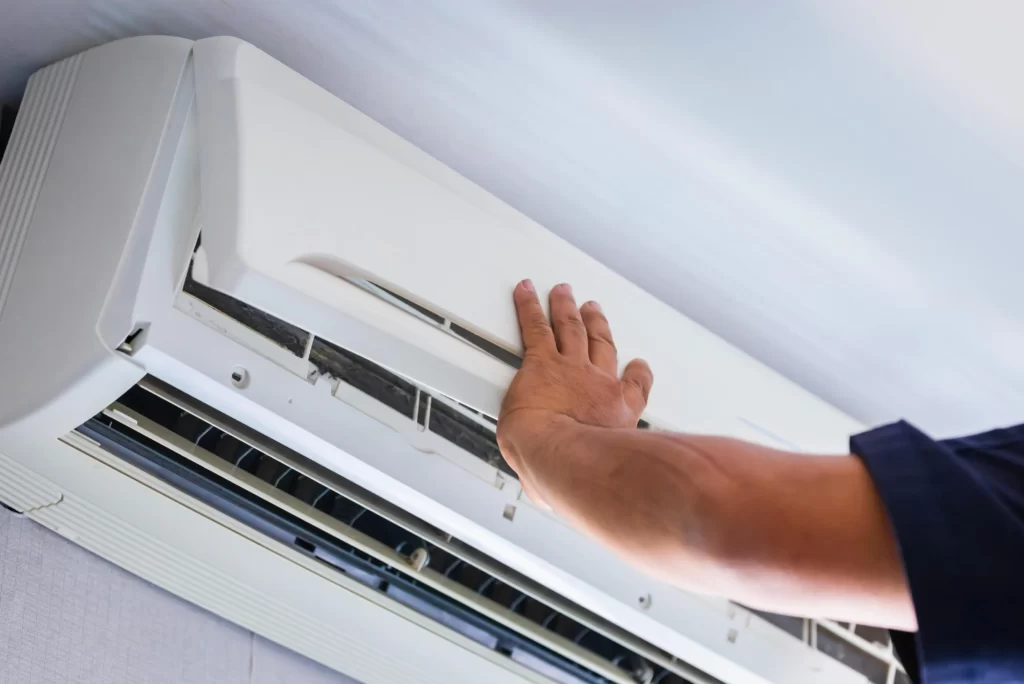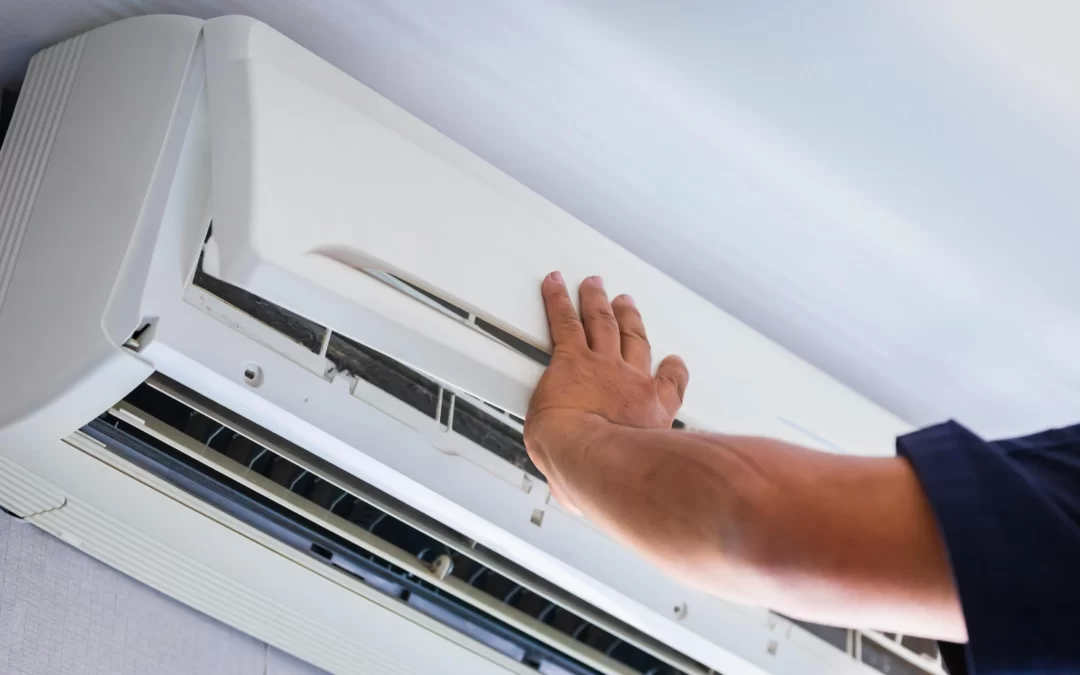When it comes to the heat of New South Wales (NSW), a reliable air conditioning system is more than a luxury – it’s a lifeline to comfort. Coastal Air Conditioning understands the importance of keeping your cool, and we are here to guide you through the often puzzling question: Who’s Responsible for Air Con Repair in NSW – the tenant or the landlord?
So Who’s Responsible For Air Conditioning Repairs in NSW?
NSW weather can be unpredictable, swinging from scorching summers to chilly winters. This means air conditioning isn’t just optional; it’s necessary year-round.
Whether you are a tenant or a landlord, understanding the ins and outs of air conditioning repairs is essential. It impacts your comfort as a tenant and the value of your property as a landlord.
Understanding Legal Responsibilities
In New South Wales, the Residential Tenancy Act is the rulebook that outlines tenants’ and landlords’ rights and responsibilities. It’s crucial to familiarise yourself with these guidelines to understand where you stand when it comes to air conditioning repairs.
Additionally, your lease agreement is another essential piece of the puzzle. Check for specifics regarding air conditioning repairs. A well-defined agreement can eliminate confusion down the line.
Landlord’s Air Conditioning Repairs Duties in a Nutshell
Your landlord’s responsibilities go beyond just providing you with a roof over your head. They must ensure your living space, including a functioning air conditioning system, is habitable. If your air conditioner decides to take an unscheduled break, your landlord is the one who should be on the case.
Basically, landlords are responsible for:
- Providing a Cosy Haven: Landlords must ensure the air con works, making the property habitable.
- Speedy Repairs and TLC: Prompt attention to repair requests is not a luxury; it’s an obligation.
- Regular maintenance is their ticket to a hassle-free relationship with tenants.
- Safety First: Landlords must adhere to safety standards, ensuring the air con doesn’t just cool but does so safely.
Tenant’s Role in Keeping Cool
While your landlord has a significant role, tenants also play a part in ensuring a smoothly running air conditioning system. Regular maintenance is key. Simple tasks like cleaning filters and ensuring proper use can go a long way in keeping things cool.
A renter’s responsibilities include:
- Routine Maintenance: Tenants play a proactive role in ensuring their system runs smoothly. Regularly cleaning the outer unit and following proper usage guidelines contributes to system longevity.
- Swift Issue Reporting: Don’t let a hiccup become a headache. Report issues promptly – quick reporting enables rapid resolution.
- Consequences of Neglect: Neglecting repairs can have repercussions. Both tenants and landlords have a stake in keeping the air conditioning system in top-notch condition.
Common Air Conditioning Repairs Issues and Solutions
Let’s talk about some common air conditioning issues. If your unit isn’t cooling as it should, it could be as simple as checking for blocked filters or more complex like refrigerant issues. In such cases, professional intervention may be needed.
Secondly, strange noises coming from your air conditioning unit can be alarming. Investigate the source, and if necessary, call in a professional. Addressing issues early on can prevent further damage and save you from larger repair bills.
Leaking and water damage can result from various issues within the air conditioning system. Whether it’s a clogged drain line or a problem with the refrigerant, addressing leaks promptly can prevent further damage to the unit and potential water damage to your living space.
Navigating the Grey Areas
Collaboration is Key
Navigating air conditioning responsibilities sometimes feels like walking through the grey areas. It is in these spaces that teamwork truly makes the dream work. Regular professional servicing and open communication between tenants and landlords emerge as the unsung heroes of maintaining air conditioning harmony.
Finding Common Ground
Within these grey zones, mutual agreement matters significantly. To avoid confusion and potential disputes, including air conditioning clauses in your lease agreement is crucial. Setting expectations from the very beginning paves the way for a smoother journey down the road.
Understanding the Legal Maze
Know Your Rights
Embarking on the legal landscape of air conditioning responsibilities demands understanding your rights. Dive into the Residential Tenancies Act – your comprehensive guide to navigating the legal intricacies of air conditioning in rental properties.
Documenting for Protection
In this legal maze, keeping a paper trail becomes your safeguard. Documentation is not just a formality; it’s your friend. Keep meticulous records of repairs, agreements, and communication to ward off potential disputes and ensure a clear path forward.
Professionals or DIY
For tenants faced with repair dilemmas, knowing when to hold and when to fold is crucial. Minor fixes and troubleshooting may be within your realm, but when uncertainty looms, it’s time to call the professionals. Avoiding the escalation of issues safeguards your comfort and your landlord’s investment.

FAQs
Who Foots the Bill for Air Conditioning Repairs in a Rental Property?
As we’ve explained, the responsibility for air conditioning repairs in a rental property depends on various factors. Landlords are typically responsible for major repairs and replacements, ensuring that the air conditioning system is in good working condition when the lease begins. However, routine maintenance and prompt reporting of issues fall under the tenant’s responsibilities.
Can Tenants be Charged for Air Conditioning Repairs?
In certain situations, tenants may be responsible for the cost of air conditioning repairs. If the damage or malfunction is a result of the tenant’s negligence or misuse, they can be held financially accountable. However, tenants should not be charged for everyday wear and tear.
What if a Landlord Delays Air Conditioning Repairs?
Tenants have rights to prompt and necessary repairs under the Residential Tenancies Act. Tenants should document the issue, communicate with the landlord in writing, and, if necessary, escalate the matter to the relevant tenancy authority.
Any DIY Repairs Tenants Can Attempt?
While tenants can attempt some DIY repairs for minor issues, it’s essential to proceed with caution. Simple troubleshooting, such as checking thermostat settings and wiping down the outside of the unit can be done by tenants. However, major repairs or complex issues should be left to professionals.
How Often Should Air Conditioning Systems be Serviced?
Regular professional servicing is recommended to maintain optimal performance and extend the lifespan of your air conditioning system. Ideally, an annual service before the start of the cooling season is advisable. Experienced technicians can inspect, clean, and identify potential issues, ensuring your air conditioning system operates efficiently.

Recent Comments